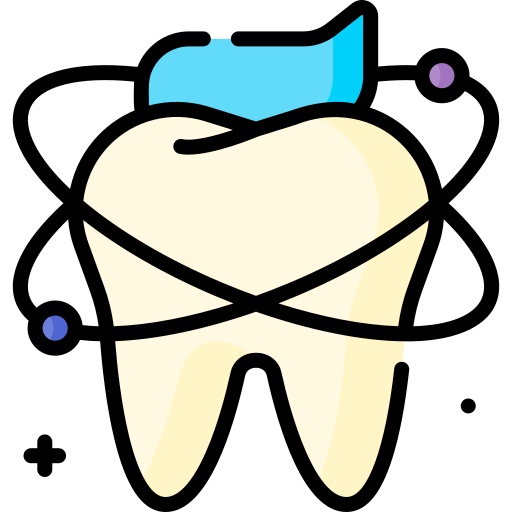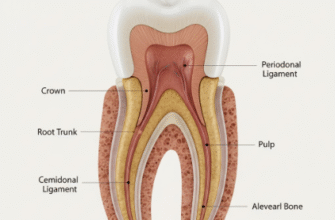We often think of a bright smile as a sign of good hygiene, something separate from the complex workings of our minds. But what if the state of your teeth and gums had a deeper, more intricate connection to your emotional and psychological well-being than commonly believed? It turns out, the mouth and the mind are not such distant neighbors after all. Emerging understanding points towards a surprising and significant link between oral health and mental health, a two-way street where each can profoundly influence the other.
The Intertwined Paths of Mouth and Mind
It’s not simply a case of one causing the other; the relationship is often bidirectional. This means that struggles with mental well-being can pave the way for oral health problems, and conversely, issues within the mouth can cast a shadow over one’s mental state. Understanding this interplay is crucial for a more holistic approach to overall health, recognizing that caring for one aspect can have positive ripple effects on the other.
When the Mind Impacts the Mouth
Consider how challenging periods in our mental landscape can inadvertently affect our daily habits. When someone is grappling with low mood, anxiety, or overwhelming stress, even the most basic self-care routines can feel like monumental tasks.
Neglect of Oral Hygiene: During episodes of depression or severe anxiety, motivation can plummet. The energy required to brush twice a day, floss, and attend dental appointments might seem insurmountable. This neglect, understandably, creates an environment where dental problems like cavities and gum disease can take root and flourish. It’s not a matter of laziness, but a genuine symptom of a deeper struggle.
Dietary Shifts: Mental distress can also alter eating habits. Some individuals might turn to sugary foods and drinks for comfort, or experience changes in appetite that lead to less nutritious choices. This increased sugar intake, especially when combined with reduced oral hygiene, significantly elevates the risk of tooth decay.
Medication Side Effects: Many medications prescribed for mental health conditions, while beneficial for managing symptoms, can have side effects that impact oral health. One of the most common is xerostomia, or dry mouth. Saliva plays a vital role in neutralizing acids, washing away food particles, and preventing bacterial overgrowth. A reduction in saliva flow leaves teeth more vulnerable to decay and gums more susceptible to infection.
Stress-Related Physical Manifestations: Stress and anxiety don’t just reside in our thoughts; they can manifest physically. Bruxism, the unconscious clenching or grinding of teeth, often occurs during sleep or periods of intense concentration. This can lead to worn-down teeth, jaw pain, headaches, and even fractured teeth. Similarly, some individuals might develop habits like chewing on pens or fingernails, which can also damage teeth.
When the Mouth Influences the Mind
Just as mental state can affect oral health, the condition of our teeth and gums can send ripples back to our mental well-being. Living with oral discomfort or aesthetic concerns can be a heavy burden.
Pain and Discomfort: Persistent toothache, sensitive gums, or ill-fitting dentures can be a constant source of irritation and pain. Chronic pain, regardless of its origin, is well-known to contribute to irritability, difficulty concentrating, sleep disturbances, and an overall decline in mood. It can make everyday activities, like eating and speaking, a struggle, diminishing quality of life.
Social Anxiety and Self-Esteem: Our smiles are a significant part of how we present ourselves to the world. Concerns about bad breath (halitosis), stained or missing teeth, or visible decay can lead to significant self-consciousness. This can erode self-esteem and trigger social anxiety, causing individuals to withdraw from social interactions, cover their mouths when speaking or smiling, or avoid situations where their dental appearance might be noticed. The fear of judgment can be incredibly isolating.
Functional Limitations: Severe oral health problems can impair basic functions. Difficulty chewing can lead to a restricted diet, potentially resulting in nutritional deficiencies that can further impact mood and energy levels. Problems with speech due to missing teeth or dental appliances can also lead to frustration and communication difficulties.
Research increasingly supports the idea that chronic inflammation, such as that found in advanced gum disease (periodontitis), may have broader systemic effects. While the exact mechanisms are still being explored, this inflammation could potentially influence mood and cognitive function. Taking care of your gums might be more important for your overall well-being than you think.
The Vicious and Virtuous Cycles
This interplay can create either a downward spiral or an upward trend. For example, if anxiety leads to neglecting oral hygiene, which then causes bad breath and tooth decay, this can heighten social anxiety, further impacting mental well-being. This creates a vicious cycle where both oral and mental health deteriorate.
Conversely, taking steps to improve oral health can initiate a virtuous cycle. The simple act of consistently brushing and flossing can provide a small sense of accomplishment and control, especially during times of mental struggle. Addressing dental issues can alleviate pain, improve appearance, and boost confidence, leading to improved mood and greater social engagement. A healthier smile can genuinely make you feel better, inside and out.
Bridging the Gap: Practical Steps for Integrated Well-being
Recognizing this connection is the first step. The next is to consider how to nurture both oral and mental health in tandem.
Maintain Open Communication: Don’t hesitate to talk to your dentist about any mental health challenges you’re experiencing or medications you’re taking. They can offer tailored advice, such as recommendations for managing dry mouth or being more understanding if you’ve had periods of neglect. Similarly, if you’re speaking with a mental health professional, mentioning any oral health concerns that are causing you distress can be beneficial.
Simplify Routines When Necessary: If you’re struggling with motivation, try to simplify your oral care routine. Keep a toothbrush and toothpaste by your bed or in a place you frequent. Even a quick brush is better than no brush. Set small, achievable goals. Using an electric toothbrush might make the process feel less effortful.
Focus on Small, Consistent Actions: Consistency trumps perfection. If flossing daily feels overwhelming, start with a few times a week. The key is to build habits that feel sustainable, even on difficult days. Every little bit helps.
Mindful Eating and Hydration: Be aware of how your food choices impact both your mood and your teeth. Limiting sugary snacks and drinks is beneficial for both. Staying well-hydrated, especially if you experience dry mouth, is crucial for oral health.
Stress Management Techniques: If stress is leading to teeth grinding or clenching, exploring stress-reduction techniques like mindfulness, meditation, or gentle exercise could be helpful. Your dentist might also recommend a night guard to protect your teeth if bruxism is an issue.
Seek Professional Support: Addressing underlying mental health conditions is paramount. Professional support from therapists, counselors, or doctors can provide strategies and treatments that improve overall well-being, which in turn can make it easier to care for your oral health. Likewise, regular dental check-ups and cleanings are essential for preventing and treating oral health problems before they escalate.
A Holistic View for a Healthier You
The connection between oral health and mental health underscores the importance of viewing our bodies and minds as an interconnected system. A healthy mouth isn’t just about avoiding cavities; it can contribute to a more positive self-image, reduced physical discomfort, and greater confidence in social interactions. Similarly, nurturing your mental well-being can provide the foundation and motivation needed to maintain good oral hygiene.
By understanding and respecting this intricate relationship, we can make more informed choices that support both our smiles and our spirits, leading to a more comprehensive state of health and happiness. It’s a reminder that small acts of self-care, whether for our teeth or our minds, can have far-reaching benefits.








